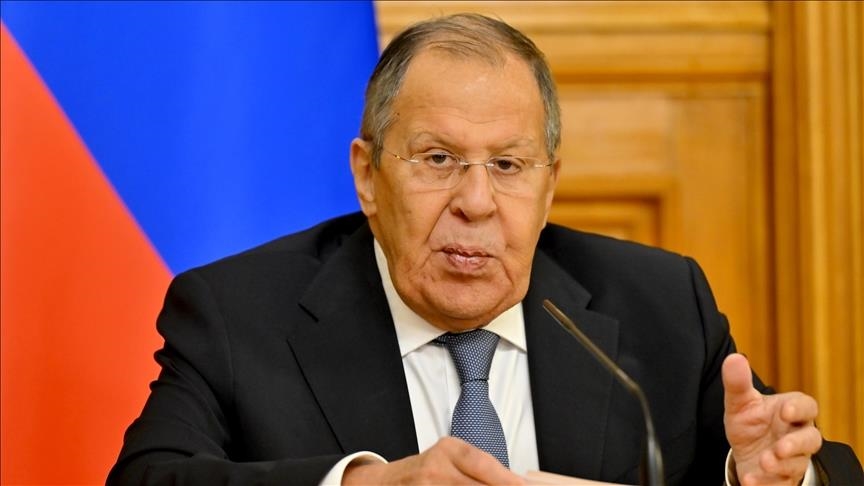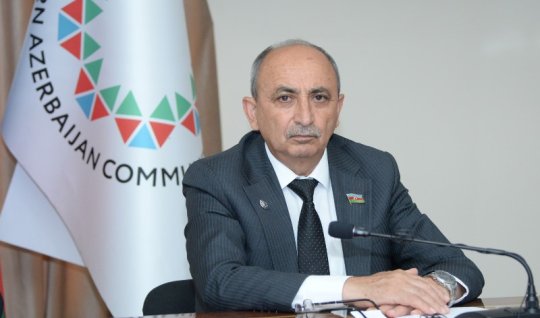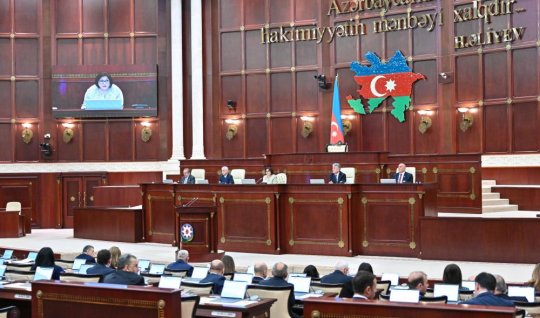The Trump-Putin meeting was reportedly canceled due to Lavrov

The reason for the cancellation of the summit planned in Budapest between US President Donald Trump and Russian President Vladimir Putin was a telephone conversation between Russian Foreign Minister Sergey Lavrov and US Secretary of State Marco Rubio.
Modern.az reports that the "Financial Times" publication wrote about this.
According to the source, Rubio informed Trump that Moscow did not appear ready for talks, and subsequently, the White House decided to postpone the summit.
According to the publication, Trump was not surprised by Lavrov's harsh rhetoric. The cancellation of the Budapest summit marked a turning point in US policy, as just a week earlier, Trump seemed to be taking steps in Putin's favor, refusing to provide long-range “Tomahawk” missiles to Ukraine.
However, subsequent events increased doubts in the White House. US officials began to believe that continuing dialogue was pointless as long as Moscow did not change its position.
FT sources report that Lavrov surprised Rubio with “irreconcilable statements” during a brief meeting in New York in September, claiming that Ukraine was “under Nazi control.”
“Lavrov appeared openly tired and seemed to refuse to engage with the US, whether it was Putin's wish or not,” the source noted.
Nevertheless, Trump's inner circle reports that the US president is still open to meeting with the Russians “if real progress is possible.”
Although Trump called his telephone conversation with Putin on October 16 “very productive,” the "Financial Times" writes that this conversation actually angered the US president.
According to two sources, Putin exaggerated the “successes” of the Russian army in the Kupyansk and Oskil regions during the conversation, which caused dissatisfaction in Trump.
Consequently, Trump stated that he had completely abandoned the idea of providing “Tomahawk” missiles to Ukraine and called this weapon “very dangerous and a means that could lead to escalation.”
Ukrainian President Zelensky, in a statement to journalists in Kyiv, said that “Putin called Trump because of the "Tomahawk" rhetoric.”
Immediately after the cancellation of the Budapest summit, the Trump administration increased pressure on Moscow. The US imposed sanctions against two major Russian oil companies, and President Trump openly criticized Putin for nuclear weapons tests, accusing him of “pursuing a policy of creating fear instead of peace.”
The "Financial Times" notes that the cancellation of the summit also deepened disagreements within Moscow. Lavrov's harsh and pessimistic stance is regarded by some Kremlin circles as a factor undermining cooperation efforts. This has opened new debates within the Russian leadership regarding the future direction of foreign policy and Lavrov's fate.
-
00:29, Bu günPSJ became the winner of the Intercontinental Cup
-
17 December 2025, 23:54Trump may declare war
-
17 December 2025, 21:483 countries unite against Turkey
-
17 December 2025, 20:50Rivers turned orange - DANGER
-
17 December 2025, 20:30Turkey abandons S-400
-
17 December 2025, 19:53Putin became the protagonist of a cartoon
-
17 December 2025, 19:10Georgians will not be able to vote abroad
-
17 December 2025, 18:29Qukasyan will remain in custody for another 3 months
-
17 December 2025, 11:10Abbas Abbasov urgently from this country FLED
-
17 December 2025, 09:49Vanga's for 2026 frightening PREDICTIONS
-
17 December 2025, 09:24Trump a US entry ban on those from 5 more countries imposed
-
17 December 2025, 00:56Will there be a civil war in Ukraine?
-
17 December 2025, 00:14Trump will address the nation
-
16 December 2025, 23:44FIFA announced the best of the year
-
16 December 2025, 23:05Scandal at the White House
-
16 December 2025, 22:55Armenia became a strategic partner with a European country
-
16 December 2025, 21:36Turkey's strongest parties - Poll results ANNOUNCED
-
16 December 2025, 21:15Putin's visit to Turkey is expected
-
16 December 2025, 20:15Marxists wanted to seize power in Russia
-
16 December 2025, 18:32Russia is a threat to 8 countries
-
16 December 2025, 18:16PSG will pay Mbappe 61 million euros
-
16 December 2025, 18:07Rubinyan replied to Khamenei's advisor: “Trump's way is not the Zangezur corridor!”
-
16 December 2025, 17:56Maduro may flee to Belarus: our door is open! - Lukashenka
-
16 December 2025, 14:32Yerevan denied Moscow: Russia is not in the Zangazur corridor discussion!
-
16 December 2025, 12:51Ukraine declared Filip Kirkorov wanted
-
16 December 2025, 11:55Russia must hand over Abbas Abbasov! - DEPUTIES
-
16 December 2025, 00:52A European country is considering NATO membership
-
16 December 2025, 00:40Progress was achieved on numerous issues - ZELENSKİ
-
16 December 2025, 00:10The West is trying to break up the Caspian Five - LAVROV
-
15 December 2025, 23:23A factory exploded in Iran - 9 people died






















































